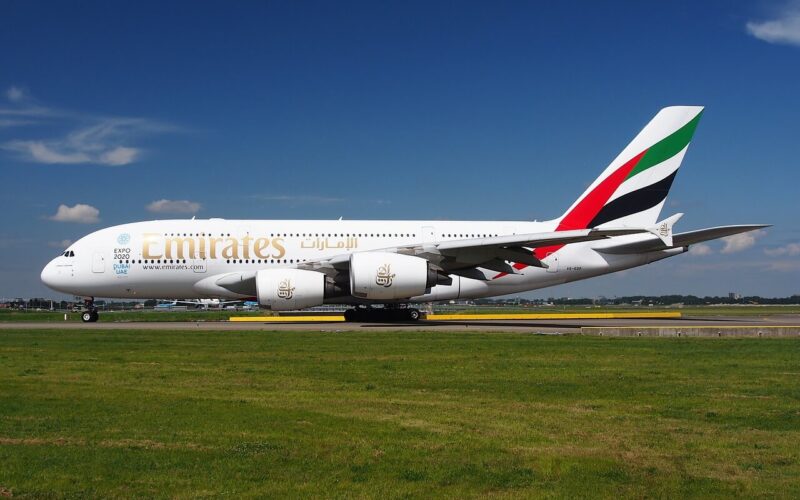Emirates, world’s largest customer of the Airbus A380, is reportedly studying the possibility of switching its recent superjumbo orders for the newer A350 wide-body. Airbus has confirmed it is in talks with the gulf carrier regarding the contract, only a year after the plane maker scored the lifesaving deal for its double-decker plane.
Emirates may convert some or all of its recent order for 20 A380s into smaller and newer A350s, Bloomberg reported on January 31, 2019, citing sources familiar with the matter. The A330neo, is reportedly also being considered.
In response to the speculation, on January 31, 2019, Airbus released a short statement on its negotiations with the carrier: “Airbus confirms it is in discussions with Emirates Airline in relation to its A380 contract. The details of Airbus’ commercial discussions with customers remain confidential.”
Seeing little interest from airlines around the world, the superjumbo program was thrown a lifeline when Emirates inked a $16 billion deal with Airbus for 36 A380s at the beginning of last year. The contract consisted of 20 A380s and 16 options, with deliveries scheduled to start in 2020.
Back when Emirates first signed the A380 agreement with Airbus, the airline’s superjumbo fleet consisted of 101 aircraft with a backlog for 41 planes. The new commitment would have brought Emirates to a total of 178 A380 aircraft in its fleet, worth over $60 billion.
The superjumbos operate Engine Alliance’s (a joint venture between GE and Pratt & Whitney) GP7000 and Roll-Royce Trent 900 engines. At the time, Emirates said it was evaluating engine options for its latest A380 order.
However, since then, Airbus has struggled to find an engine manufacturer willing to meet the carrier’s price and performance demands: neither Engine Alliance nor Rolls-Royce have agreed on the terms with the plane maker, Bloomberg writes.
It is not the first time the gulf carrier presents a surprise for Airbus: during the Dubai Air Show 2017, Emirates struck a similar blow when it opted for Boeing Dreamliners instead of an anticipated $16 billion worth A380 deal.
Emirates fleet is made up entirely of Airbus A380 and Boeing 777s. The carrier is the largest operator of the superjumbo jet, accounting for 61% of outstanding orders (53 in total), according to Bloomberg. Currently, the airline operates a total of 109 A380 double-deckers.
Airbus orders and deliveries book through December 31, 2018, however, shows that Emirates had also taken delivery of five A300s, eight A310s, 28 A330-200s, and 10 A340-500/600 aircraft that are yet not in operation.
In August 2018, the gulf carrier celebrated 10 years of A380 operations (since its first flight in 2008). According to the airline, the aircraft “is a customer favourite, playing a significant role in Emirates’ growth and network expansion”.
Today’s situation almost begs the question of what may happen during the upcoming Paris Air Show this June or even the very same Dubai Airshow in November. It also puts the future of the A380 program under a big question mark.
Airbus commercial aircraft orders and deliveries report for the year 2018 showed the plane maker delivered a total of 800 aircraft, comprising 626 A320 Family jets, 49 A330s, 93 A350 XWB, 20 A220s and only 12 A380s (compared to 15 in 2017).

